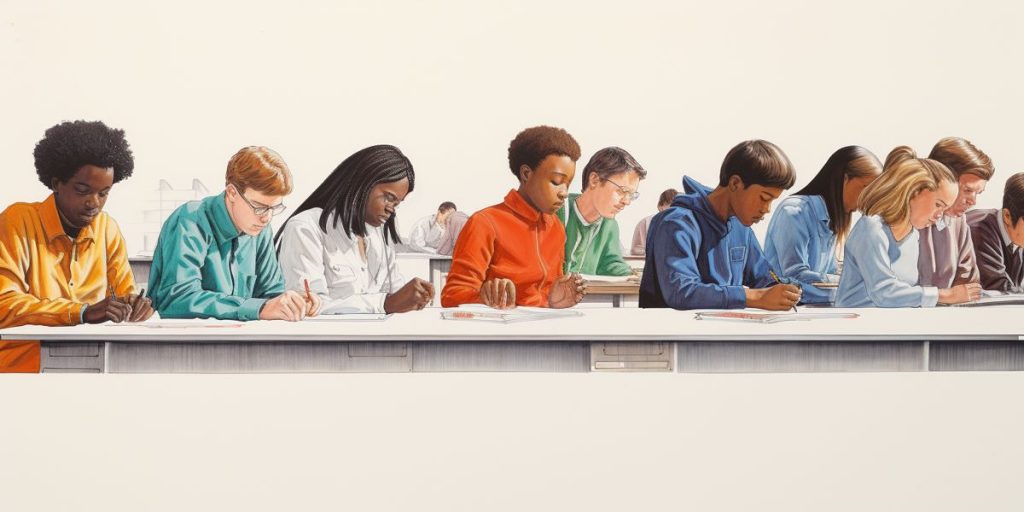Linguistic diversity in Trikomo’s education system, particularly at Bekirpasha high school, presents challenges such as insufficient preparatory classes for non-Turkish speaking students and a lack of specialized staff. This affects educational standards and the effectiveness of teaching, prompting a need for government initiatives to support linguistic assimilation and ensure equal educational opportunities.
What are the challenges of linguistic diversity in Trikomo’s education system?
Linguistic diversity in Trikomo’s education system, particularly at Bekirpasha high school, presents challenges such as insufficient preparatory classes for non-Turkish speaking students and a lack of specialized staff. This affects educational standards and the effectiveness of teaching, prompting a need for government initiatives to support linguistic assimilation and ensure equal educational opportunities.
The Multilingual Classroom
In Trikomo, a remarkable shift in the linguistic landscape is becoming increasingly evident, especially within the walls of the local high school, Bekirpasha. Out of approximately 700 students, nearly 300 do not speak Turkish as their mother tongue. This linguistic diversity has introduced significant challenges in maintaining educational standards and delivering effective teaching.
Biray Hamzaogullari, a local ‘MP’ from the opposition party CTP, highlighted these issues during a conversation with TV2020. He noted the presence of classes where the majority of students struggle with Turkish, and instances where multiple languages coexist within a single classroom. “How can a teacher give a lesson in these circumstances?” he pondered, raising concerns over the current state of language education.
The Need for Preparatory Classes
The situation at Bekirpasha high school underscores an acute need for preparatory classes aimed at equipping non-Turkish speaking children with the language skills necessary for successful integration into the school system. Unfortunately, according to Hamzaogullari, the education ministry’s response has been less than adequate, leaving a critical need unaddressed.
A Rising International Community
Trikomo’s recent boom in foreign investment has reshaped its demographics and, by extension, its educational requirements. High-rises have mushroomed across Long Beach and Bogazi, attracting a wealthy international clientele from Russia, Ukraine, Iran, and Israel. With properties fetching upwards of £200,000 (€230,421), the area has witnessed a surge in the population of third-country nationals, including their school-age children.
Integration Initiatives
In an attempt to bridge the linguistic gap, steps are being made by the ‘government’ to tackle the issue head-on. ‘Prime Minister’ Unal Ustel and ‘Education Minister’ Nazim Cavusoglu both participated in a conference in Bosnia and Herzegovina, focusing on the education of students with different native languages and the methods for teaching them Turkish effectively.
Strains on Educational Infrastructure
Teachers have long voiced their concerns regarding the influx of students without Turkish language proficiency. With insufficient infrastructure and a dearth of specialized staff to provide the necessary support, educators are stretched thin, juggling their responsibilities while trying to cater to the needs of these children.
A Call for Action
The circumstances at Bekirpasha high school serve as a microcosm of a broader issue that encompasses language, education, and immigration. It is a clarion call for relevant authorities to expedite measures that support linguistic assimilation and ensure that every child receives a fair chance at education, regardless of their linguistic background.
Quick Recap
- Linguistic diversity in Trikomo’s education system, particularly at Bekirpasha high school, presents challenges such as insufficient preparatory classes for non-Turkish speaking students and a lack of specialized staff.
- The situation at Bekirpasha high school underscores an acute need for preparatory classes aimed at equipping non-Turkish speaking children with the language skills necessary for successful integration into the school system.
- Trikomo’s recent boom in foreign investment has reshaped its demographics and introduced a rising international community, increasing the need for language education.
- Steps are being taken by the government to tackle the issue head-on, including participation in a conference focusing on teaching Turkish effectively to students with different native languages.
- Teachers have voiced their concerns about the strains on educational infrastructure caused by the influx of students without Turkish language proficiency, highlighting the need for support and specialized staff.

